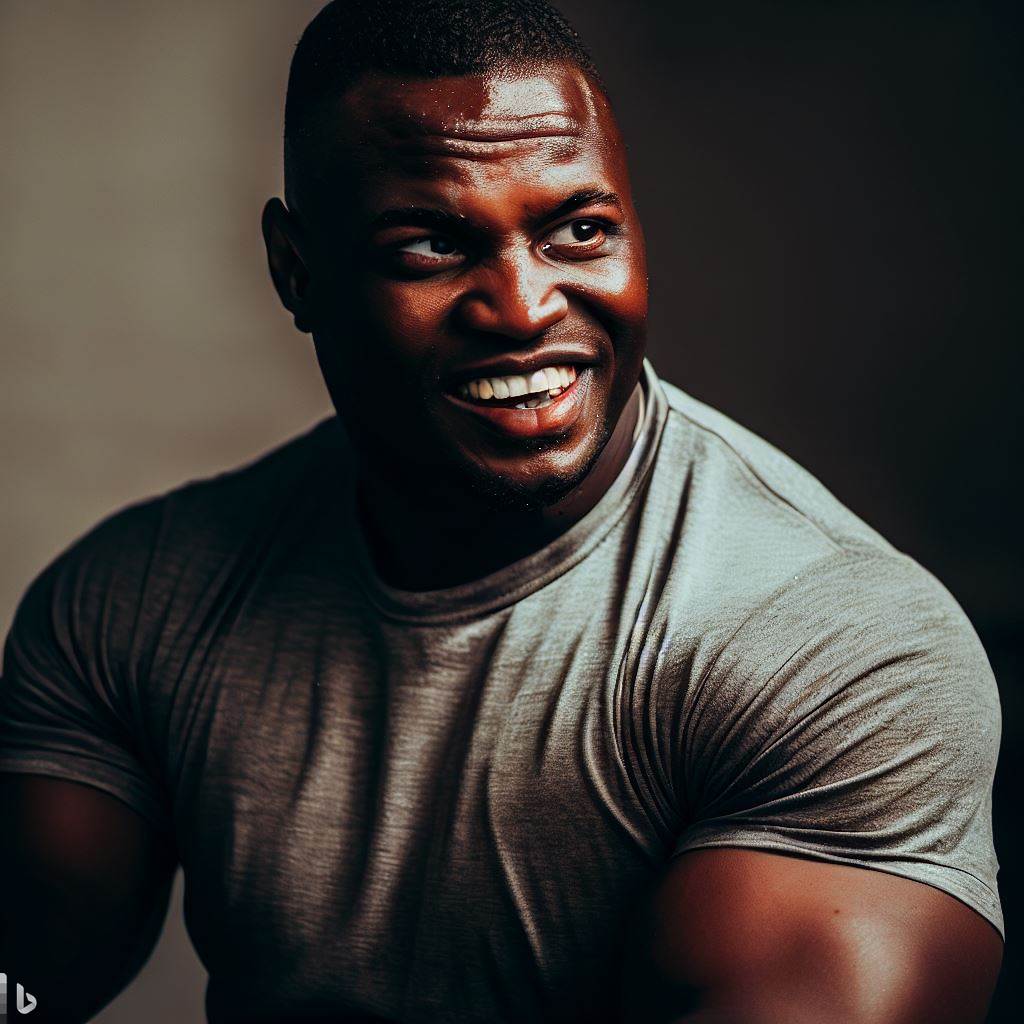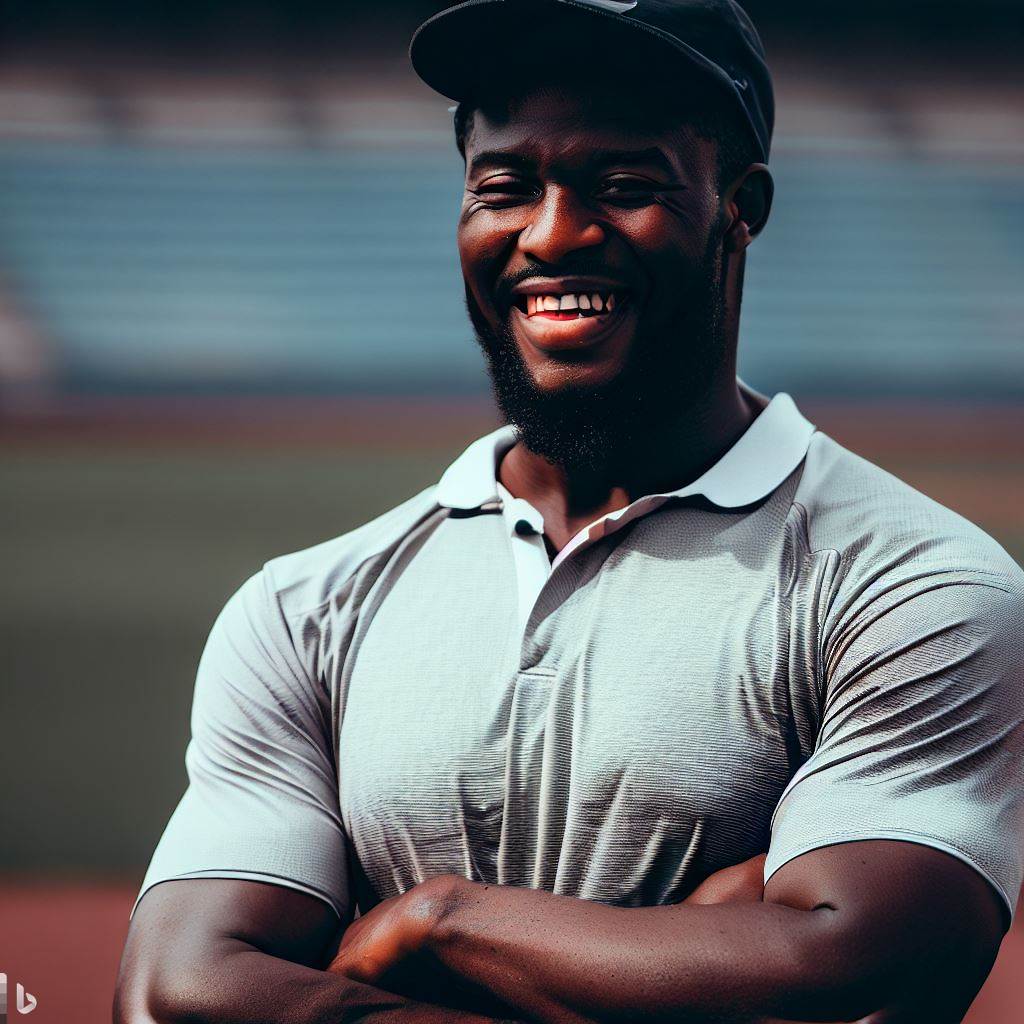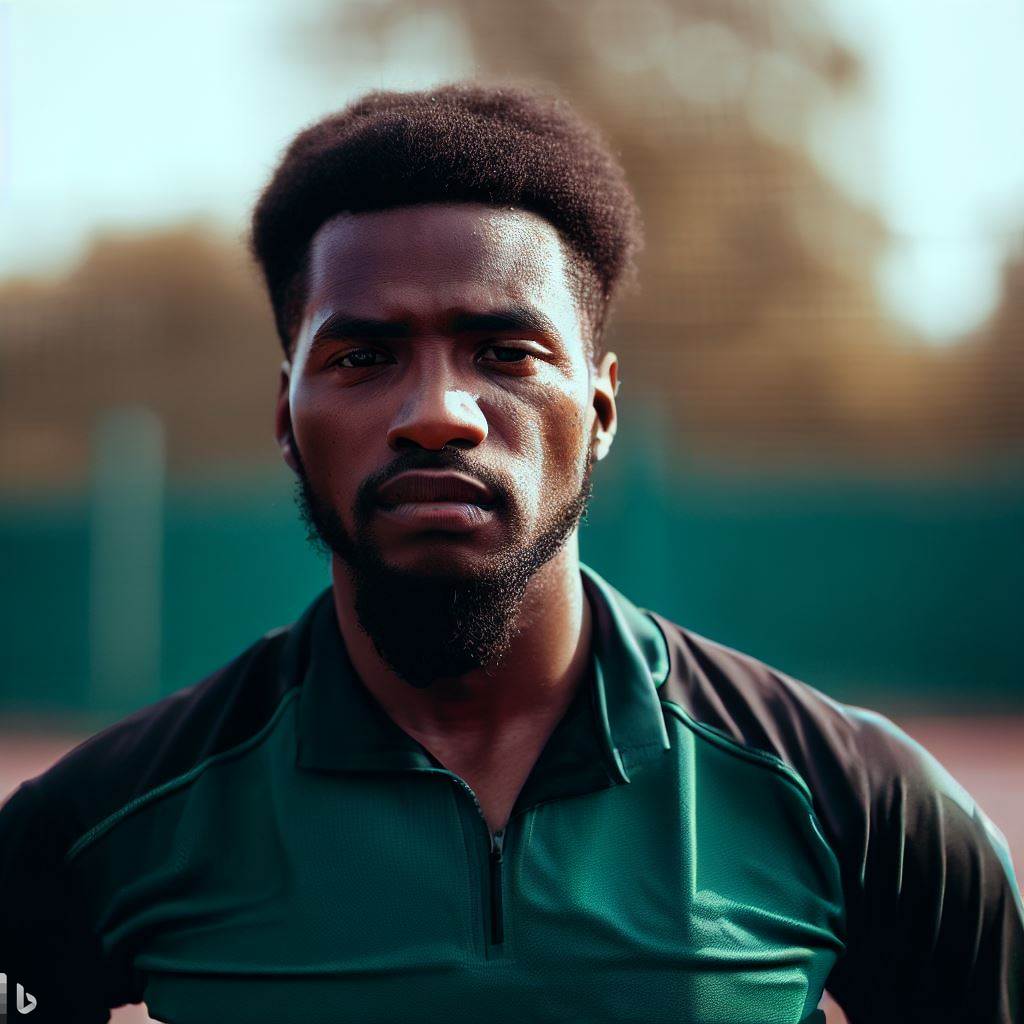Introduction
Athletic Directors in Nigeria play a crucial role in overseeing and managing sports programs and activities in schools and universities across the country.
Their responsibilities include supervising coaches, coordinating competitions, and ensuring the overall development of athletes.
Athletics holds a significant place in Nigeria’s sports culture.
It not only encourages physical fitness but also helps in fostering discipline and sportsmanship among individuals.
It provides a platform for young talents to showcase their skills and potentially pursue a career in sports.
However, Nigerian Athletic Directors face several challenges in carrying out their duties effectively.
One major challenge is the lack of funding and resources.
Many schools and universities struggle to provide adequate facilities, equipment, and financial support to develop a robust athletic program.
Another challenge is the limited opportunities for professional development and training.
Athletic Directors often lack access to educational workshops and seminars that can help them stay updated with the latest trends and techniques in sports management.
Additionally, the prevailing cultural emphasis on education over sports creates a mindset that undervalues athletics.
This leads to a lack of support and recognition for the important work of Athletic Directors in Nigeria.
In order to overcome these challenges, it is crucial for stakeholders in the education and sports sectors to collaborate and prioritize the development of athletics in Nigeria.
Adequate funding, improved infrastructure, and professional development opportunities are essential in empowering Athletic Directors to fulfill their responsibilities effectively.
By recognizing the significance of athletics in Nigeria’s sports culture, we can pave the way for a brighter future for sports development in the country.
Lack of adequate funding and resources
In Nigeria today, athletic directors face a number of challenges that hinder the development and success of sports programs. One major challenge is the lack of adequate funding and resources.
Insufficient budget allocation for sports programs
- Limited financial support from the government often leads to underfunding of sports programs.
- Insufficient budget allocation hampers the ability to provide necessary equipment, coaching staff, and facilities.
- Without proper funding, athletic directors struggle to recruit and retain talented athletes.
Limited access to training facilities and equipment
- Lack of proper training facilities restricts athletes from reaching their full potential.
- Athletic directors often struggle to find suitable venues for competitions and training sessions.
- Limited access to equipment hinders the development of athletes, as they are unable to practice and train effectively.
Need for financial support from government and private organizations
- Government support is crucial for the growth of sports programs, including funding and infrastructure development.
- Private organizations can play a significant role by offering financial assistance and sponsorships for athletes.
- Financial support from both government and private organizations can help athletic directors provide better opportunities for athletes.
In order to address these challenges, it is important for athletic directors in Nigeria to advocate for increased funding and resources:
- Raise awareness about the importance of sports in Nigeria’s development and well-being.
- Engage with government officials to emphasize the need for adequate budget allocation for sports programs.
- Seek partnerships with private organizations and businesses to secure additional financial support.
- Develop a comprehensive plan outlining the specific needs of sports programs and the potential benefits for athletes and the country as a whole.
- Collaborate with local communities to identify and utilize existing resources, such as public spaces for training.
Furthermore, athletic directors should prioritize creating a sustainable model for sports development:
- Encourage the establishment of sports academies and specialized training centers to enhance talent development.
- Forge partnerships with educational institutions to integrate sports programs into the curriculum.
- Foster relationships with professional sports organizations to provide opportunities for athletes to progress in their careers.
By addressing the challenges of funding and resources, athletic directors in Nigeria can create an environment where athletes have the support and opportunities needed to thrive.
With increased investment and access to facilities and equipment, Nigerian athletes can compete at both national and international levels, bringing pride and success to the country.
It is essential for the government and private organizations to recognize the importance of sports and provide the necessary support for athletic directors to overcome these challenges and drive the growth of sports in Nigeria.
Read: Licensing & Certification for Sports Info Directors in Nigeria
Limited participation and interest in sports
In Nigeria, athletic directors face numerous challenges when it comes to limited participation and interest in sports.
These challenges can be attributed to several factors, including low awareness and promotion of sports at grassroots levels, cultural and societal factors affecting sports engagement, and the importance of creating awareness and developing interest at an early age.
Low awareness and promotion of sports at grassroots levels
One major challenge that athletic directors face is the low awareness and promotion of sports at grassroots levels.
In many communities, there is a lack of emphasis on the benefits and importance of participating in sports.
This leads to a limited number of individuals being exposed to sports and having the opportunity to develop their athletic abilities.
Without proper awareness and promotion, potential athletes may never discover their talent or passion for sports.
Athletic directors need to work towards creating a culture of sports participation by organizing events, workshops, and seminars to educate individuals on the benefits of sports.
Cultural and societal factors affecting sports engagement
Cultural and societal factors also play a significant role in limiting participation and interest in sports in Nigeria.
Traditional gender roles and stereotypes, for example, often discourage girls from participating in sports, leading to a gender disparity in sports engagement.
Additionally, certain sports may be seen as less prestigious or valuable compared to others, leading individuals to prioritize academic pursuits over sports.
This mindset can result in limited resources and support for sports programs.
Importance of creating awareness and developing interest at an early age
Recognizing the importance of creating awareness and developing interest in sports at an early age is crucial for athletic directors.
By targeting young children and introducing them to various sports, athletic directors can ignite a lifelong passion for physical activity and athletics.
Introducing sports programs in schools and community centers, conducting sports clinics, and engaging with parents and guardians are effective strategies to develop interest in sports among young children.
When children are exposed to sports at an early age, they gain valuable physical, social, and emotional skills that can contribute to their overall development.
They also have a higher likelihood of continuing to participate in sports as they grow older.
The challenges faced by athletic directors in Nigeria regarding limited participation and interest in sports require proactive solutions.
By addressing the low awareness and promotion of sports at grassroots levels, overcoming cultural and societal barriers, and emphasizing the importance of creating awareness and developing interest at an early age, athletic directors can pave the way for increased sports engagement in Nigeria.
Through collaboration with schools, community organizations, and government bodies, athletic directors can implement effective strategies that encourage active participation in sports and foster a sports culture that benefits individuals and the nation as a whole.
Read: Athletic Directors in Nigeria: Salaries and Benefits
Poor infrastructure and facilities
Inadequate maintenance and development of sports facilities.
Sports facilities in Nigeria face a myriad of challenges, primarily due to the inadequate maintenance and development that they receive.
This results in subpar conditions for athletes to train and compete in. The lack of proper upkeep leads to a decline in the overall quality of the facilities, which affects athletes’ performance and hampers their progress.
The responsibility of maintaining and developing these sports facilities lies with athletic directors.
However, they often face a lack of funding and support from the relevant authorities, exacerbating the problem.
Without regular maintenance, facilities deteriorate quickly and become unusable, presenting a significant hindrance to athletes who rely on them.
To rectify this issue, athletic directors need to advocate for increased funding and allocate resources for the regular upkeep of sports facilities.
This includes proper cleaning, repair, and replacement of equipment and infrastructure.
By prioritizing maintenance, athletic directors can ensure that athletes have access to safe and functional spaces to train and compete.
Lack of suitable venues for competitions.
Another challenge facing athletic directors is the scarcity of suitable venues for competitions.
Nigeria often struggles to provide appropriate locations for sporting events, resulting in logistical difficulties and reduced participation.
Athletes need venues that meet international standards and provide optimal conditions for fair competition.
Without suitable venues, Nigeria struggles to attract prestigious tournaments or international teams, denying athletes the opportunity to showcase their talent on a global stage.
It also affects the development of sports tourism, which can contribute significantly to the country’s economy.
Athletic directors must address this challenge by lobbying for investment in the construction and renovation of sports venues, ensuring that Nigeria can host both national and international competitions.
Need for infrastructural investment and improvement.
To overcome the challenges faced by athletic directors, there is a crucial need for infrastructural investment and improvement across the country.
Nigeria must prioritize the development of sports infrastructure to create an environment that supports athletes and fosters their growth.
Investing in modern facilities, including state-of-the-art stadiums, training centers, and arenas, is vital to elevate the quality of sports in Nigeria.
By doing so, the country can attract talented athletes, encourage grassroots participation, and enhance its chances of success in international competitions.
Governments, private organizations, and sponsors must come together to provide the necessary funding and support for infrastructural development in sports.
Athletic directors should actively engage with stakeholders, raise awareness about the importance of investment, and advocate for the creation of sports infrastructure that meets international standards.
In short, the challenges faced by athletic directors in Nigeria today regarding poor infrastructure and facilities greatly impact the development of sports in the country.
Inadequate maintenance, a lack of suitable competition venues, and the overall need for infrastructural investment hinder athletes’ progress and limit Nigeria’s potential in the global sports arena.
However, proactive measures, such as advocating for increased funding, addressing maintenance issues, and pushing for the construction of modern sports facilities, can help overcome these challenges and provide Nigerian athletes with the support they need to thrive.
Read: Top Nigerian Universities for Aspiring Athletic Directors

Inconsistencies in Policy Implementation
In Nigeria, athletic directors face numerous challenges in their quest to develop and improve sports programs.
One crucial obstacle they encounter is the inconsistencies in policy implementation.
Lack of Standard Guidelines for Sports Development
One of the major challenges faced by athletic directors in Nigeria today is the absence of standard guidelines for sports development.
The lack of clear directives and protocols creates confusion and hinders progress. Without an established framework, it becomes challenging to structure and execute effective strategies.
The absence of clear guidelines also affects decision-making processes.
Athletic directors often find themselves grappling with questions such as how to allocate resources, how to identify and nurture talent, and how to ensure fairness in competitions.
The lack of standardized guidelines makes it difficult for them to make well-informed choices and often leads to arbitrary decision-making.
Inefficient Administration and Governance of Sports Programs
Another challenge faced by athletic directors is the inefficient administration and governance of sports programs.
In many instances, there is a lack of proper management systems, which leads to misallocation of resources and hampers the overall development of sports.
Without efficient administration, sports programs can suffer from various issues such as inadequate funding, lack of training facilities, and inadequate coaching staff.
These factors not only hinder the growth of athletes but also contribute to a decline in competitiveness at both national and international levels.
Moreover, the absence of robust governance structures allows for favoritism, corruption, and nepotism to seep into the sports programs.
This not only compromises the integrity of competitions but also demoralizes athletes and undermines their trust in the system.
Need for Effective Policies and Their Proper Implementation
While policies exist to address the challenges in sports development, their effectiveness is hampered by inadequate implementation.
Athletic directors in Nigeria face the pressing need for effective policies and their proper execution.
The formulation of well-crafted policies is only the first step. The real test lies in the implementation of these policies on the ground.
Without proper execution, even the most robust policies fail to yield the desired results. Ineffective implementation often arises due to a lack of clarity, accountability, and monitoring mechanisms.
Furthermore, policy inconsistencies across different regions and sporting disciplines pose a significant barrier to progress.
As each state and sporting federation may have its own set of rules, athletes face numerous obstacles when participating in different competitions.
This lack of uniformity not only inhibits fair play but also hampers the holistic development of athletes.
In essence, the challenges faced by athletic directors in Nigeria today regarding policy implementation include the lack of standard guidelines for sports development, inefficient administration and governance of sports programs, and the need for effective policies and their proper implementation.
Publish Your Professional Profile, Business or Brand
Showcase your expertise, gain trust, and boost visibility instantly on Professions.ng.
Publish NowOvercoming these obstacles requires collaboration among stakeholders, the establishment of clear protocols, and the enforcement of transparent and accountable systems.
Only by addressing these challenges can Nigeria strive towards a more organized and successful sports landscape.
Read: Roles of an Assistant Coach in Nigerian Sports Teams
Talent Development and Recruitment Challenges
Athletic directors in Nigeria face several challenges when it comes to talent development and recruitment.
These challenges hinder the country’s ability to tap into its vast pool of untapped athletic potential.
Insufficient Scouting and Identification of Talented Athletes
- Lack of comprehensive scouting networks hinders the identification of talented athletes.
- Inadequate resources and funding limit the capacity to invest in scouting programs.
- Failure to reach remote regions and grassroots communities prevents the discovery of hidden talents.
- Weak collaboration between schools, clubs, and athletic associations slows down talent identification.
Limited Pathways and Opportunities for Aspiring Athletes
- Limited access to quality training facilities and coaching programs hampers athlete development.
- Inadequate academic support structures discourage talented athletes from pursuing their dreams.
- Insufficient scholarship programs make it difficult for financially disadvantaged athletes to excel.
- Absence of well-structured talent pathways discourages long-term athlete commitment and growth.
Importance of Talent Identification Programs and Talent Development Initiatives
Talent identification programs and development initiatives play a vital role in addressing these challenges and nurturing the potential of athletes in Nigeria.
- Establishment of comprehensive talent identification programs can unearth hidden talents across the country.
- Collaboration between schools, clubs, and athletic associations is crucial for identifying and nurturing athletes.
- Investment in training facilities and coaching programs can enhance the development of aspiring athletes.
- Integration of academic support structures enables athletes to pursue their passion while obtaining an education.
- Expansion of scholarship programs allows talented but financially disadvantaged athletes to showcase their skills.
- Creation of well-structured talent pathways motivates athletes to commit to long-term development goals.
- Promotion of talent development initiatives fosters a culture of excellence in Nigerian athletics.
- Encouragement of collaborations with international sporting organizations opens doors for exposure and development.
- Continuous evaluation and improvement of talent identification and development programs are essential for long-term success.
Overcoming these challenges requires a collective effort from governments, educational institutions, athletic associations, and sporting bodies in Nigeria.
By addressing talent development and recruitment challenges, Nigerian athletic directors can unlock the country’s immense potential and produce world-class athletes.
Ongoing issues with doping and corruption
Lack of strict anti-doping measures and enforcement
Athletic directors in Nigeria face the hurdle of inadequate anti-doping measures and the lack of stringent enforcement mechanisms.
This poses significant challenges in ensuring fair competition and protecting the health of athletes.
Currently, there is an absence of comprehensive drug testing protocols and anti-doping regulations in place.
As a result, athletes may resort to using performance-enhancing substances without facing the consequences.
Without a robust anti-doping framework, Nigerian athletic directors struggle to identify and deter athletes from engaging in doping practices.
There is a pressing need for collaboration with international anti-doping agencies to establish standardized testing protocols, educate athletes about the dangers of doping, and implement strict penalties for offenders.
Moreover, investing in state-of-the-art doping detection equipment and facilities is crucial to enhance the credibility of Nigerian sports.
Corruption in sports administration affecting fairness and integrity
Corruption within sports administration remains a major challenge for athletic directors in Nigeria.
This corruption takes various forms, such as embezzlement, bribery, and favoritism, leading to a compromised system that undermines fairness and the integrity of athletic competitions.
It affects the selection process for national teams, the allocation of financial resources, and the overall management of sports organizations.
To address this issue, Nigerian athletic directors must adopt a zero-tolerance policy towards corruption.
This requires the implementation of transparent and accountable administrative processes, including financial audits and disciplinary committees.
Collaborating with law enforcement agencies to investigate and prosecute corruption cases within sports administration can also serve as a deterrent.
By promoting a culture of integrity, Nigerian athletic directors can rebuild trust and ensure a level playing field for athletes.
Need for stringent anti-doping policies and ethical standards
To combat doping and corruption, Nigerian athletic directors must prioritize the development of strict anti-doping policies and ethical standards.
These policies should align with international best practices and adhere to World Anti-Doping Agency (WADA) regulations.
Ensuring that athletes are educated about the risks and consequences of doping is crucial in fostering a culture of fair play and clean competition.
Furthermore, implementing ethical standards and codes of conduct for sports administrators is essential.
Athletic directors should be required to undergo regular ethics training to enhance their understanding of ethical decision-making and conflicts of interest.
By upholding the highest ethical standards, athletic directors can earn the trust of athletes, supporters, and the international sporting community.
In general, Nigerian athletic directors face ongoing challenges related to doping and corruption.
The lack of strict anti-doping measures and enforcement, along with corruption in sports administration, severely impact fairness and integrity.
By prioritizing the development of stringent anti-doping policies, collaborating with international organizations, and promoting ethical standards, athletic directors can work towards a cleaner and more transparent sports environment in Nigeria.
Gain More Insights: Salary Insights: Sports Information Directors in Nigeria
Conclusion and Recommendations
Summary of the Main Challenges Facing Athletic Directors in Nigeria Today
Athletic directors in Nigeria face numerous challenges in managing and developing athletic programs.
These challenges include inadequate funding, lack of proper infrastructure, limited access to resources and equipment, insufficient qualified coaches, and inadequate support from the government and sports bodies.
All of these factors greatly hinder the growth and success of athletic programs in the country.
Call for Action from Relevant Stakeholders, Including Government and Sports Bodies
It is imperative that relevant stakeholders, including the government and sports bodies, take immediate action to address the challenges faced by athletic directors in Nigeria.
Adequate funding should be allocated to athletic programs to improve infrastructure, provide necessary resources and equipment, and attract qualified coaches.
Additionally, the government and sports bodies need to prioritize the development of athletes and provide support systems that foster growth and success.
Recommended Strategies to Overcome These Challenges and Improve Athletic Programs in Nigeria
To overcome the challenges, the following strategies are recommended:
- Increase funding: The government should allocate more resources to athletic programs, ensuring that there is sufficient financial support for infrastructure development and the provision of necessary resources and equipment.
- Enhance coaching development: Training programs and workshops should be conducted regularly to improve the quality of coaches, ensuring they possess the necessary skills and knowledge to develop athletes effectively.
- Improve infrastructure: The government should invest in building and maintaining sports facilities, including stadiums, tracks, and training centers, to provide athletes with the necessary infrastructure for training and competitions.
- Establish partnerships: Collaboration between government, sports bodies, and private organizations can help secure sponsorships and partnerships to support athletic programs financially and provide athletes with exposure to international competitions.
- Foster grassroots development: Identifying and nurturing talent at a young age can help establish a foundation for the future of Nigerian athletics. Schools and local communities should be involved in active talent identification and development programs.
By implementing these strategies, Nigeria can overcome the challenges faced by athletic directors and improve the overall quality and success of athletic programs in the country.
It is crucial that all stakeholders work together to ensure the growth and development of Nigerian athletes in both national and international arenas.




